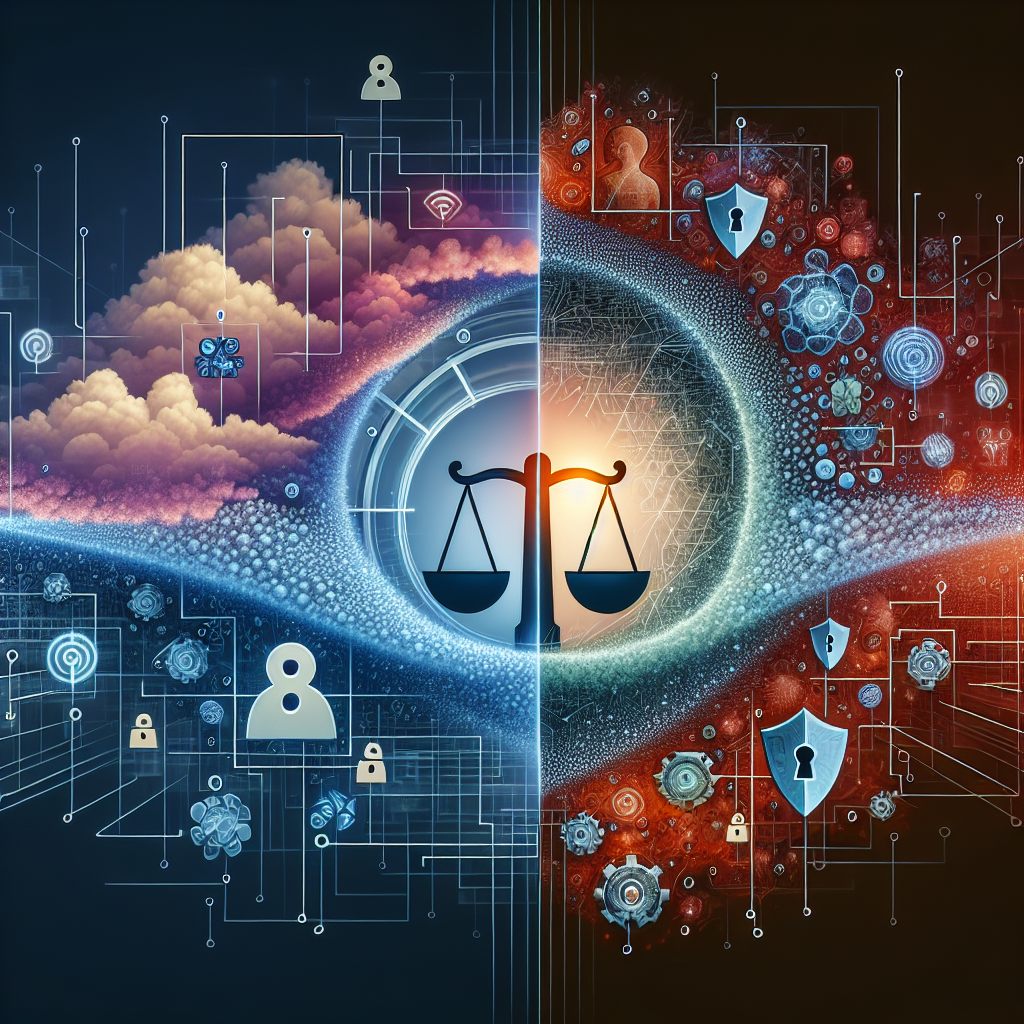In today’s digital age, the use of artificial intelligence (AI) has become increasingly prevalent in various aspects of our lives. From personalized recommendations on social media platforms to autonomous vehicles, AI technology has the potential to revolutionize the way we live and work. However, with this rapid advancement in AI technology comes concerns about privacy and ethical boundaries.
One of the main issues surrounding AI and privacy is the collection and use of personal data. AI algorithms rely on vast amounts of data to make decisions and predictions, and this data often includes sensitive information about individuals. For example, AI systems used in healthcare may access patients’ medical records to provide diagnoses or treatment recommendations. While this can lead to more accurate and personalized healthcare, it also raises concerns about the security and privacy of patients’ data.
Another concern is the potential for AI systems to make biased decisions. AI algorithms are trained on large datasets, which may contain biases or prejudices that can be inadvertently encoded into the system. This can result in discriminatory outcomes, such as biased hiring decisions or unequal access to resources. Ensuring that AI systems are fair and unbiased is crucial to upholding ethical standards and protecting individuals’ rights.
Furthermore, there is a lack of transparency in how AI systems make decisions, which can make it difficult to hold them accountable for their actions. Unlike humans, AI algorithms operate based on complex mathematical calculations that are often inscrutable to the average person. This lack of transparency can lead to mistrust and uncertainty about how AI systems are making decisions that affect our lives.
To address these concerns, it is essential to establish clear ethical boundaries for the use of AI technology. This includes ensuring that individuals have control over their personal data and are informed about how it is being used. Companies and organizations that develop AI systems must also prioritize transparency and accountability in their algorithms to prevent biased or unfair outcomes.
One approach to promoting ethical AI is through the development of guidelines and regulations that govern the use of AI technology. For example, the European Union’s General Data Protection Regulation (GDPR) sets strict guidelines for the collection and processing of personal data, including provisions for data transparency and individual consent. Similarly, organizations such as the Institute of Electrical and Electronics Engineers (IEEE) have developed ethical guidelines for AI developers to follow, including principles such as transparency, accountability, and fairness.
In addition to regulatory measures, it is also important for AI developers and researchers to engage in ethical discussions and considerations throughout the development process. This includes conducting thorough risk assessments to identify potential ethical issues, as well as involving diverse stakeholders in the decision-making process. By prioritizing ethical considerations from the outset, developers can ensure that their AI systems are designed with privacy and fairness in mind.
Despite these efforts, ethical concerns surrounding AI and privacy are likely to persist as the technology continues to advance. As AI systems become more integrated into our daily lives, it is crucial for individuals, organizations, and policymakers to remain vigilant in addressing these concerns and upholding ethical standards. By working together to establish clear guidelines and promote transparency and accountability, we can ensure that AI technology is used responsibly and ethically.
FAQs:
Q: What are some examples of AI technologies that raise privacy concerns?
A: Examples of AI technologies that raise privacy concerns include facial recognition systems, personalized advertising algorithms, and healthcare diagnostics tools that access patients’ medical records.
Q: How can individuals protect their privacy in the age of AI?
A: Individuals can protect their privacy in the age of AI by being cautious about sharing personal information online, using privacy settings on social media platforms, and staying informed about how their data is being used by companies and organizations.
Q: What are some ethical considerations for AI developers?
A: Ethical considerations for AI developers include ensuring transparency and accountability in their algorithms, avoiding biased or discriminatory outcomes, and engaging in ethical discussions throughout the development process.
Q: How can policymakers address the ethical boundaries of AI and privacy?
A: Policymakers can address the ethical boundaries of AI and privacy by establishing clear guidelines and regulations for the use of AI technology, promoting transparency and accountability in AI systems, and engaging in ethical discussions with stakeholders.

